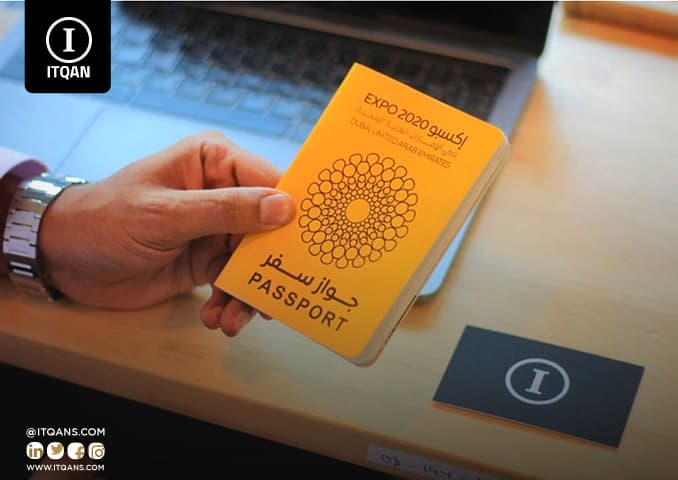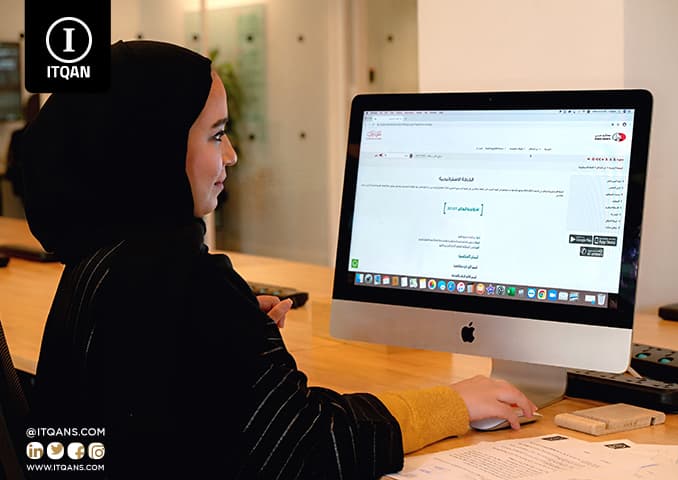Dubai has become one of the world’s leading centers for digital currency technology. Thanks to its advanced economic environment and future strategies, Dubai provides unique opportunities to establish companies operating in the field of digital currencies. Cryptocurrencies, such as Bitcoin and Ethereum, are among the most innovative and exciting fields, making Dubai an ideal destination for investors and entrepreneurs seeking to enter this growing market.
Setting up a cryptocurrency business in Dubai requires a deep understanding of the regulatory environment and the unique advantages the city offers. Dubai provides modern infrastructure and strong government support for financial technology projects, which enhances the chances of success in this sector. Through government initiatives such as the Dubai International Financial Center (DIFC) and the Financial Services Regulatory Authority (FSRA), companies can obtain the necessary licenses and benefit from a legal environment that encourages innovation and supports business growth.
One of the essential aspects to consider is compliance with cryptocurrency regulations. Dubai provides a clear regulatory framework aimed at ensuring the security of operations and protecting investors. It requires obtaining the appropriate licenses and applying the necessary security standards, ensuring that your company operates within the established legal frameworks.
In addition, entrepreneurs need to think about the technical and managerial aspects when starting a cryptocurrency company. This includes building an experienced fintech team, developing effective marketing strategies, and ensuring the right technology infrastructure is in place.
In short, establishing a cryptocurrency company in Dubai represents a golden opportunity to enter an advanced and growing market. With a deep understanding of regulatory requirements and strategic planning, you can build a strong foundation for your company and rocket toward success in the world of cryptocurrencies.

جدول المحتوى
ToggleLegal requirements for establishing a cryptocurrency company in Dubai
Establishing a digital currency company in Dubai requires compliance with a set of legal requirements that ensure compliance with local and international laws. Here are some basic steps and requirements:
- Choosing the legal structure: Choose the appropriate legal structure for the company, such as a limited liability company (LLC), joint stock company, or others.
- Business License: To obtain a cryptocurrency license, you must apply for a license from a regulatory body such as the Dubai International Financial Center (DIFC) or the Virtual Assets Regulatory Authority (VARA), which oversees cryptocurrency-related activities.
- Anti-Money Laundering Compliance: You must adhere to anti-money laundering and counter-terrorism financing laws, including KYC and customer identity verification procedures.
- Submit a detailed business plan: A clear business plan must be submitted that explains the type of activities that the company will undertake, how they will be managed, and the mechanisms followed to ensure legal compliance.
- Obtaining Security Approvals: Obtaining security approvals may be required to ensure that activities related to digital currencies do not pose a threat to cybersecurity or national security.
- Registration in the Commercial Registry: Register the company in the local commercial registry and obtain a commercial registration number.
- Opening a bank account: Opening a company bank account, which may require submitting additional documents related to the nature of the business and compliance with laws.
Documents required to obtain a license to establish a company in Dubai
To obtain a license to establish a company in Dubai , you will need to submit a set of basic documents. Documents vary slightly depending on the type of company and type of license, but generally include:
- License applications: The license application form filled out by the competent authorities.
- Business plan: A document that describes the type of activities that the company will undertake, its goals, and its strategies.
- Identity documents: A valid passport for the founding individuals or partners in the company.
National ID card (for citizens and residents of the Emirates). - Residence visas: Valid residence visas for established individuals (if they reside in the UAE).
- Regulatory approval: Some activities may need special approvals from different regulatory bodies (such as the Securities and Commodities Authority or the Virtual Assets Regulatory Authority).
- Company documents: Memorandum of Association and Articles of Association of the company.
- Lease Contract: A lease contract for an office or commercial site that is commensurate with the activities that the company will undertake.
- Authorization: Legal authorization if there is a person submitting the application on behalf of the founders.
- Financial statements: In some cases, the competent authorities may request the submission of financial statements or proof of financial ability to establish the company.
- Evidence of activity: Documents that support the proposed business activity, such as contracts or agreements that prove the existence of a real business.
Laws and regulations related to digital currency trading
Trading digital currencies in Dubai requires compliance with a set of laws and regulations aimed at regulating this activity and protecting it from financial and security risks. Here is an overview of the most prominent laws and regulations related to digital currency trading:
- Virtual Assets Regulatory Authority (VARA): Established in 2022 as a regulatory body in Dubai responsible for regulating and monitoring activities related to digital assets, including digital currencies. VARA aims to provide an effective regulatory framework that supports innovation in this field and ensures compliance with local and international laws.
- Anti-Money Laundering and Counter-Terrorism Financing Law: Companies operating in the field of digital currencies must comply with anti-money laundering and counter-terrorist financing laws. This includes implementing “Know Your Customer” (KYC) and “Know Your Customer” (KYB) procedures to verify the identity of customers and monitor financial activities.
- Financial Activities Regulation Law: Activities related to digital currencies, such as trading digital currencies or providing investment services, may require obtaining a license from the Securities and Commodities Authority or other relevant financial authorities.
- Personal Data Protection Law: Companies that handle customer data must adhere to personal data protection laws, including protecting and securing customer information against unauthorized access.
- Compliance with international standards: Companies may need to comply with international standards related to cryptocurrency trading, such as guidance issued by the Financial Action Task Force (FATF) that seeks to ensure transactions are transparent and protected from illegal uses.
- Free Zone Regulations: If a company operates from a free zone in Dubai, it needs to comply with the specific regulations and laws that regulate that zone, such as the Dubai International Financial Center (DIFC) or Dubai World Trade Center (DWTC).
- Commercial company laws: Companies conducting digital currency trading activity must adhere to the commercial company laws in Dubai, including incorporation, operation, and financial compliance laws.

Costs of establishing a company in Dubai
The costs of establishing a company in Dubai include several basic elements that vary according to the type of company, location, and type of activity. Here’s an overview of the main costs you may face:
- Company licensing: includes fees for obtaining a license from the competent authorities, such as the Department of Economic Development or other regulatory bodies, depending on the type of company and activity.
- Office Rent: You have to pay rent for an office or business location. Rent varies depending on location and office size.
- Insurance: You may need insurance for company offices and employees, and this depends on the type of insurance and the requirements of the regulatory body.
- Legal Advisor: Costs associated with hiring a legal advisor or law firm to assist you with the legal procedures and preparing the required documents.
- Bank fees: Fees for opening a company bank account, which may include setup and account maintenance fees.
- Registration: Fees for registering the company in the commercial registry or any other records necessary for its establishment.
- Notarization fees: You may need to notarize some documents, such as the articles of incorporation and articles of association, which requires paying fees to notary offices or a notary public.
- Special licenses: If the company operates in an industry that requires additional licenses (such as financial or medical activities), you will need to pay a fee to obtain these licenses.
- Administrative expenses: Costs associated with setting up the office, such as furniture, equipment, and any other administrative services.
- Annual Taxes and Licenses: Fees for annual renewal of licenses and compliance with legal requirements.
In conclusion, it can be said that establishing a cryptocurrency company in Dubai is a strategic step towards entering the innovative world of digital finance. Dubai, being one of the most prominent global financial centres, provides an ideal environment for companies seeking to benefit from the growth of the digital currency and financial technology market.
Dubai’s advanced regulatory environment, including security and transparency laws by the Securities and Commodities Authority and the Dubai International Financial Centre, enhances trust and provides a clear legal framework. Although the procedures may be a bit complicated, broad government support, including licensing facilities and tax exemptions, speeds up the incorporation process and reduces potential challenges.
Starting a digital currency company also requires developing a solid strategy that includes market analysis, setting goals, and developing an effective business plan. It is essential to have a deep understanding of technology and cryptocurrency markets to ensure the success of your project. In addition, you should invest in security technologies to protect data and transactions, to maintain your reputation and build trust with your customers.
The most important frequently asked questions about establishing a digital currency company in Dubai
Are companies required to submit periodic financial reports?
Yes, periodic financial reports must be submitted to regulatory authorities such as VARA and the Securities and Commodities Authority, including reports on the company’s financial position and compliance with legal standards.
What are the investment opportunities in the field of digital currencies in Dubai?
Dubai provides great opportunities to invest in digital currency projects, including currency exchanges, trading platforms, providing digital financial services, and blockchain technology consulting.
Are there government incentives for investors in the field of digital currencies?
Yes, the government may provide incentives such as tax exemptions in free zones, support from government bodies, and facilitations in licensing and registration procedures.
What are the regulatory bodies responsible for regulating digital currencies in Dubai?
The Virtual Assets Regulatory Authority (VARA) is the body responsible for regulating activities related to digital currencies in Dubai. The Securities and Commodities Authority (SCA) may also be involved in regulation if the company deals with digital securities.


















